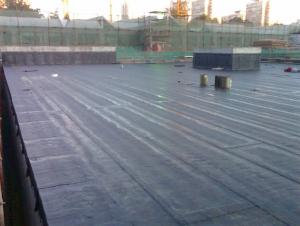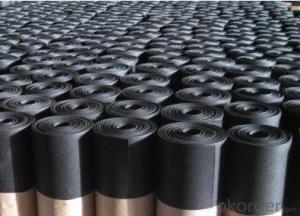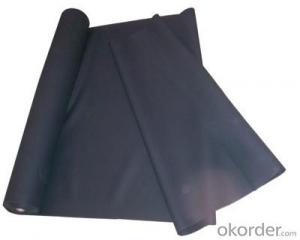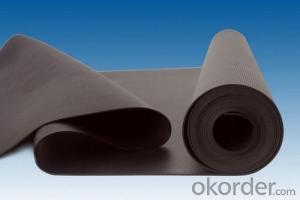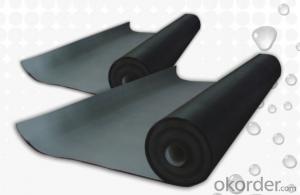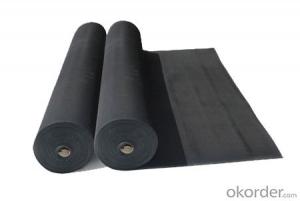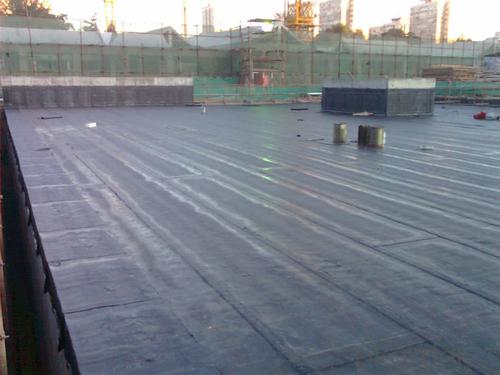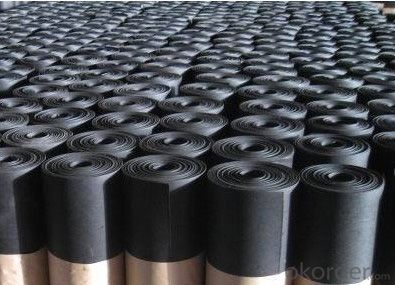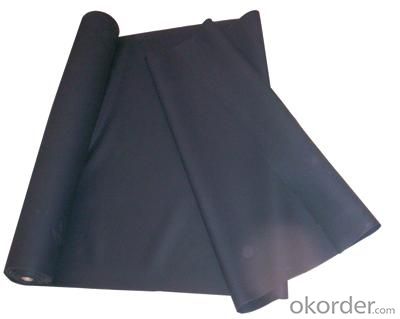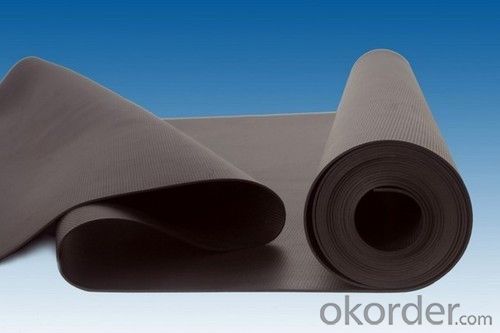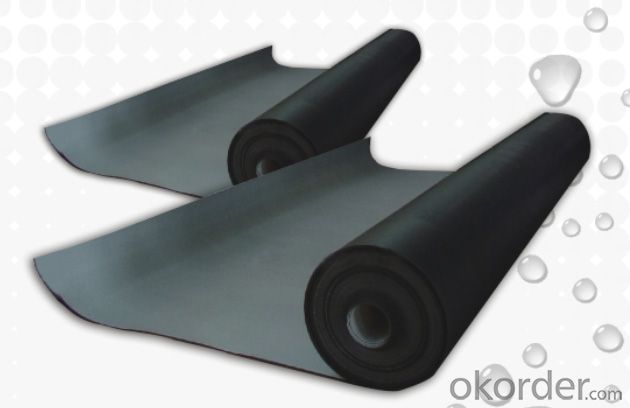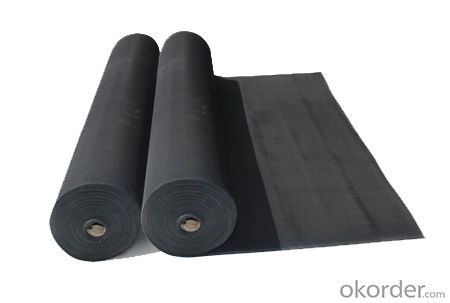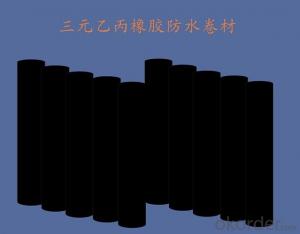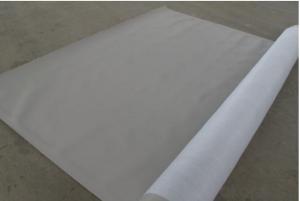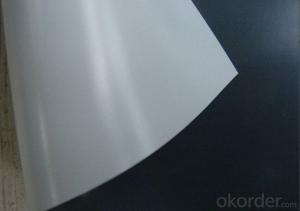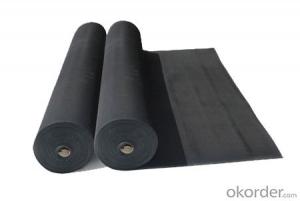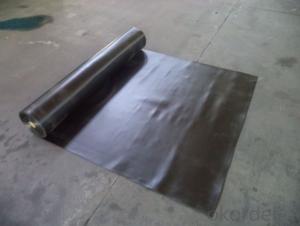EPDM Coiled Rubber Waterproof Membrane with 2.0mm Thickness
- Loading Port:
- Shanghai
- Payment Terms:
- TT OR LC
- Min Order Qty:
- 20000 m²
- Supply Capability:
- 5000000 m²/month
OKorder Service Pledge
OKorder Financial Service
You Might Also Like
EPDM Coiled Rubber Waterproof Membrane with 2.0mm Thickness
Description Of EPDM Coiled Rubber Waterproof Membrane with 2.0mm Thickness:
This waterproof coiled material is of high elasticity with best performance among high polumer
waterproof coiled material in the world.It is also the most typical one in the world.Waterproof coiled material made of ternary ethylene-propylene rubber is produced withthe use of the most advanced contiuous extrusion and vulcanization technology and related equipments which are specially designed for production of such product.It is good in compactness,without bubble and performance difference in length and breadth,perfomances reach or exceedthe demands of GB18173.1-2000 standard.
Main Features of EPDM Coiled Rubber Waterproof Membrane with 2.0mm Thickness:
A.Polyester based SBS Modified Bitumen Waterproofing Membrane
a. Strong impermeability
b. High tensile strength, elongation, ability to adapt the grassroots shrinkage deformation and cracking
c. Puncture-resistant, broken resistant, tear-resistant
d. The corrosion resistance, resistance to mildew, weathering good
e. Construction convenient, hot-melt can be operated Four Seasons Construction, reliable joints
B. Fiberglass based SBS Modified Bitumen Waterproofing Membrane
a. High tensile strength, stability of a good size
b. High Temperature good performance
c. Damage resistance, corrosion resistance, resistance to mildew, weathering good performance
d. Good construction performance, reliable joints.
Specifications of EPDM Coiled Rubber Waterproof Membrane with 2.0mm Thickness:
| Material | EPDM Rubber |
| Size | 1.2m (width)*20m (length) or customized, weldable type 2.05m or 4m width |
| Thick | 1.2mm, 1.5mm, 2.0mm |
| Type | Vulcanized & Weldable |
| Pattern | Non-reinforced (homogeneous) |
| Certificate | ISO9001/14001 |
Applications of EPDM Coiled Rubber Waterproof Membrane with 2.0mm Thickness:
1. Roofs, Basement, Toilet
2. Industrial and civil building waterproofing
3. Geo-synthetic liner for swimming pool, channels, irrigation system
4. Especially suit for projects with high requirements in durability, anti-corrosion and deformation
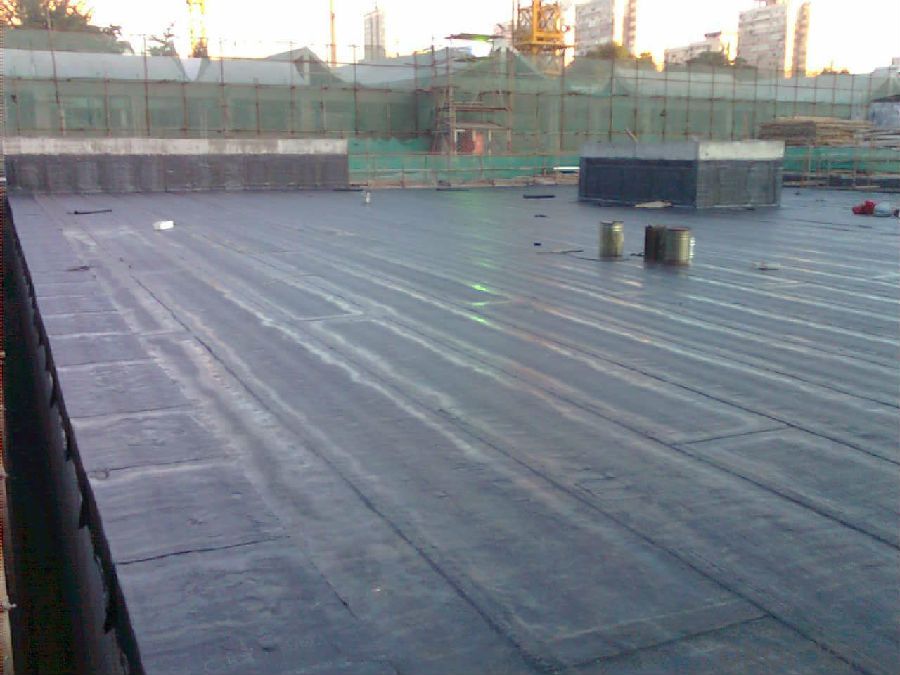
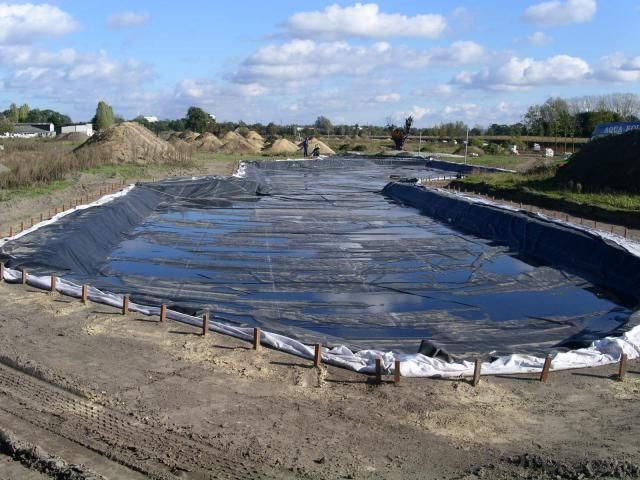
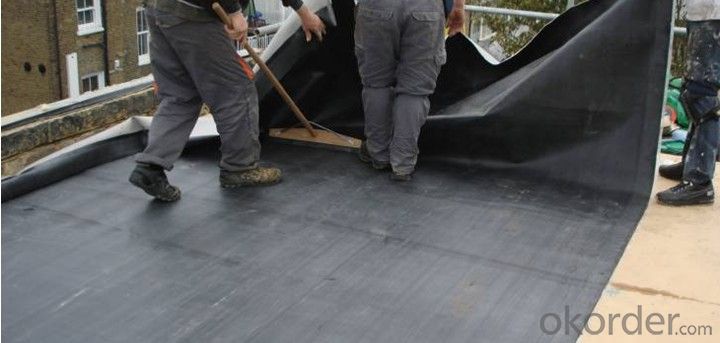
IMages of EPDM Coiled Rubber Waterproof Membrane with 2.0mm Thickness:
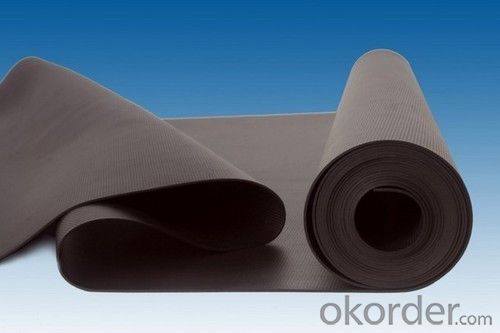
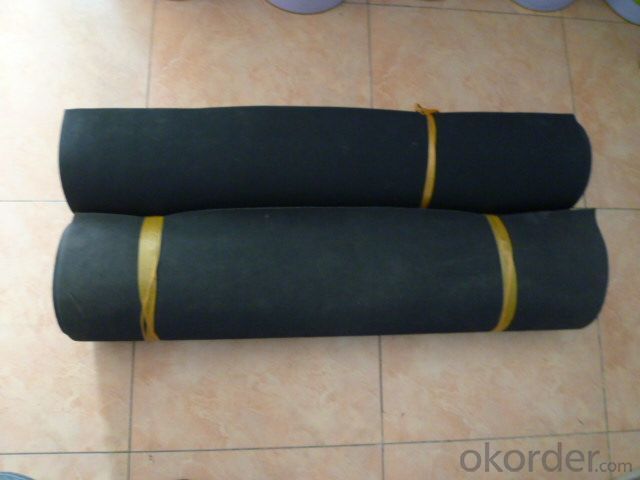
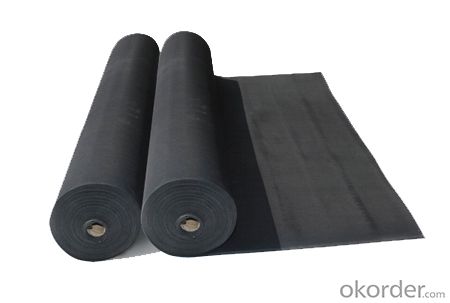
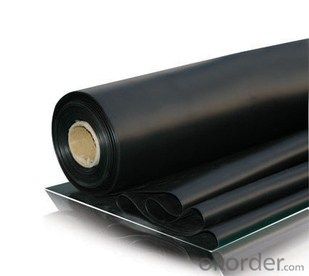
FAQ of EPDM Coiled Rubber Waterproof Membrane with 2.0mm Thickness:
1. What are we supplying?
We are specialized in producing Colorful Asphalt Roof Shingle, SBS/APP modified bitumen waterproof membrane, Self adhesive bitumen waterproof membrane, PVC waterproofing membrane, EPDM rubber roofing membrane, Single Component Polyurethane Waterproof Coating, and Spray Polyurea Waterproof Coating
.
2. How Many years experience do we have?
We have been exported to more than 20 countries in the past 15 years.
3. How long do we usually reply your request?
We always reply our customer within 24 hours.
- Q: Can a waterproofing membrane be used in temporary or temporary structures?
- Yes, a waterproofing membrane can be used in temporary or temporary structures. It provides an effective barrier against moisture, protecting the structure from potential water damage during its temporary lifespan.
- Q: Are waterproofing membranes resistant to chemical solvents?
- Yes, waterproofing membranes are generally resistant to chemical solvents. Most waterproofing membranes are designed to withstand exposure to various chemicals, including solvents. They are specifically formulated to provide a barrier against moisture and also protect against damage from chemical exposures. This resistance to chemical solvents is an important feature of waterproofing membranes, as it ensures their durability and effectiveness in a wide range of applications, such as in construction, roofing, and below-grade waterproofing. However, it is important to note that the specific resistance of a waterproofing membrane to chemical solvents can vary depending on the type and brand of membrane used, so it is always recommended to consult the manufacturer's guidelines for specific information on chemical resistance.
- Q: Are waterproofing membranes resistant to ammonia?
- Waterproofing membranes are generally resistant to ammonia. Ammonia is a chemical compound commonly found in cleaning agents and fertilizers, and it can be corrosive to certain materials. However, waterproofing membranes are specifically designed to withstand various chemicals and environmental conditions, including exposure to ammonia. These membranes are typically made from materials such as polyvinyl chloride (PVC), ethylene propylene diene monomer (EPDM), or modified bitumen, which have excellent chemical resistance properties. Therefore, when properly installed, waterproofing membranes should be able to provide a barrier against ammonia and prevent its penetration into the underlying structures. It is important to note that the specific resistance of a waterproofing membrane to ammonia may vary depending on the type and quality of the membrane, as well as the concentration and duration of exposure. Hence, it is always recommended to consult the manufacturer's guidelines and perform compatibility testing before using any waterproofing membrane in an environment with ammonia presence.
- Q: Can a waterproofing membrane be used on precast galvanized surfaces?
- Yes, a waterproofing membrane can be used on precast galvanized surfaces. The waterproofing membrane is designed to provide a protective barrier against water penetration, and it can be applied to various surfaces including precast galvanized surfaces. The membrane helps to prevent water from seeping into the surface, protecting the underlying structure from moisture damage. However, it is important to ensure that the precast galvanized surface is properly prepared before applying the membrane, as any loose or flaking galvanized coating should be removed to ensure proper adhesion of the membrane. Additionally, it is advisable to consult with the manufacturer or supplier of the waterproofing membrane to ensure that it is compatible with galvanized surfaces and to follow their recommended application guidelines for best results.
- Q: How does a waterproofing membrane handle exposure to UV radiation?
- Waterproofing membranes are specifically designed to withstand exposure to UV radiation, which is a common environmental factor that can cause deterioration and degradation of materials over time. In order to counteract the damaging effects of UV radiation, manufacturers typically incorporate UV stabilizers and additives into the production of waterproofing membranes. These substances serve as a barrier, either absorbing or reflecting the UV rays and preventing them from penetrating the membrane. Additionally, certain waterproofing membranes may include extra protective layers or coatings that further enhance their resistance to UV radiation. Ultimately, the inclusion of UV stabilizers and protective layers in waterproofing membranes guarantees their ability to endure prolonged exposure to UV radiation without compromising their performance or integrity.
- Q: Is a waterproofing membrane resistant to solvents or chemical spills?
- Yes, a waterproofing membrane is typically resistant to solvents or chemical spills.
- Q: Can a waterproofing membrane be used in areas with chemical exposure?
- Yes, a waterproofing membrane can be used in areas with chemical exposure. However, it is essential to choose a membrane specifically designed to withstand the chemicals present in the environment. The membrane should have chemical resistance properties and be compatible with the specific chemicals it will be exposed to in order to provide effective protection against water damage and chemical degradation.
- Q: Can a waterproofing membrane be used in interior or exterior applications?
- Yes, a waterproofing membrane can be used in both interior and exterior applications. In interior applications, such as basements or bathrooms, a waterproofing membrane can be installed on walls or floors to prevent water or moisture from seeping through. This helps to protect the underlying structure from damage caused by water intrusion. In exterior applications, a waterproofing membrane can be applied to the exterior walls or foundations of a building to prevent water from penetrating into the structure. This is especially important in regions with heavy rainfall or high water tables. By creating a barrier against water, the membrane helps to keep the interior of the building dry and free from water damage. Overall, the use of a waterproofing membrane in both interior and exterior applications is essential for ensuring the longevity and durability of a structure by protecting it from water-related issues.
- Q: Can a waterproofing membrane be used for swimming pool coping?
- No, a waterproofing membrane is not typically used for swimming pool coping. Coping refers to the materials used to cap the edge of a swimming pool, such as tiles or stones. While a waterproofing membrane may be used to seal and protect the pool shell, it is not designed to serve as a coping material.
- Q: Can a waterproofing membrane be used for industrial applications?
- Industrial applications can indeed utilize waterproofing membranes. These specialized membranes are designed specifically to create a barrier against water infiltration, and they can be employed in various industrial settings that require protection against water intrusion. Industries like construction, manufacturing, and transportation commonly employ these membranes to safeguard structures, equipment, and products from water damage. Furthermore, they can be applied to various surfaces such as roofs, walls, floors, and underground structures, providing durable waterproofing solutions that endure over time. The remarkable resilience of waterproofing membranes allows them to withstand even the harshest environmental conditions, chemicals, and high temperatures. This exceptional durability makes them particularly suitable for industrial applications that necessitate resistance to these elements. In summary, waterproofing membranes offer a dependable and efficient solution for industrial waterproofing requirements.
Send your message to us
EPDM Coiled Rubber Waterproof Membrane with 2.0mm Thickness
- Loading Port:
- Shanghai
- Payment Terms:
- TT OR LC
- Min Order Qty:
- 20000 m²
- Supply Capability:
- 5000000 m²/month
OKorder Service Pledge
OKorder Financial Service
Similar products
Hot products
Hot Searches
Related keywords
